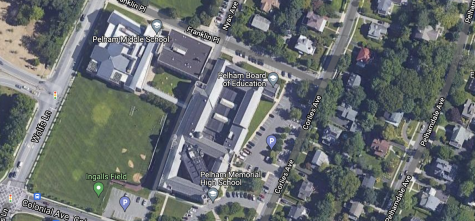How do you know if your child should see a therapist?
Times are difficult for everyone, and of course, we’re always concerned first and foremost about our children. That said, teens are often moody, can appear disinterested and/or disconnected from the adults in their lives, and unmotivated. Especially during the pandemic, when kids are not engaged in their usual social and extracurricular activities, it can be hard to tell what is typical teen behavior and when it would be beneficial to see a professional. Here are some thoughts and places to look for help.
Ask yourself the following questions:
- Has your child’s behavior changed significantly, e.g. more withdrawn, eating or sleeping more or less than before, losing pleasure in things he/she enjoyed?
- Consider how intense your child’s symptoms are, as well as the frequency and duration of these symptoms. Are your child’s symptoms interfering with his/her functioning or with your family’s functioning? For example, not completing schoolwork, not attending club activities or sports, not able to wake up in time for school.
- Has your child been isolating from friends or recently changed friend groups? Pulling away from parents is normal once kids reach adolescence, but they should want to be engaged with peers at some level.
Talk to your pediatrician:
- Your child’s pediatrician can be an excellent resource, having known your child for years and seen him/her develop, and knowing what’s within the range of expected behaviors and struggles at any given age.
- The pediatrician may be able to easily reassure you or may advise you to contact a mental-health professional. Ask if they have any providers they recommend; even better if other families have reported back having a positive experience with the mental-health provider.
Consider using these school resources. (Please note, named individuals are current as of December 2020. For any updates, please search by the title in the school directory under keyword, or call the building operator.): This page includes information for all schools.
Elementary School
Teacher: Your teacher can be a good resource because they spend a significant amount of time with your child; they see how your child interacts with peers, and they have extensive experience with children of the same age. They could help you to decide whether to reach out to the school psychologist or an outside mental health provider.
Psychologist: As someone with years of training and a specialty in school counseling, the psychologist can meet with your child and assess their needs. They might then either meet with your child as needed or recommend an outside provider.
Middle School
Teacher or other trusted adult: Even in middle school, where the students have less time with any particular teacher, you may find that they develop a relationship with certain teachers. Those teachers can share their impressions of your child, including his/her engagement in class and with peers and any sense they have that your child is struggling.
School counselor: The school counselors are a great resource for any social or emotional issue; contact them or ask your child to make an appointment. The counselor can help your child (and you) decide whether and what kind of help may be beneficial from there.
Social worker (Sharon Charles, LCSW): Your child’s school counselor may refer them to Charles for a consultation for social or emotional issues. Your child can also drop in to see her on their own initiative. All discussions are confidential, unless there is a threat of immediate harm to your child or to someone else.
Psychologists: (Dr. Tricia Joseph, Dr. Tiziana Didonna): Parents can contact the school psychologists directly for a concern about your child’s learning or a social or emotional issue.
High School
Teacher or trusted adult: Students at this age may take more initiative to create a relationship with a teacher or coach. If you’re worried about your child, you can contact the teacher through a parent-teacher conference or by email. The teacher will find a time to talk to you about your concerns and will refer you to the social worker or psychologist if they think that would be helpful.
School counselor: Students can always make an appointment with their school counselor, and this is the best place to start with both social and emotional issues. The school counselors know the resources both within and outside of the school and can help your child decide on next steps and make referrals, if needed. As parents, if you are concerned about your child, their school counselor is your first point of contact. They will discuss your concerns and help decide next steps, make referrals where appropriate and act as the point person for you and your child.
Social worker (Kristin Quintano, LCSW): Your child may stop in to see Quintano or make an appointment. Your child’s school counselor can suggest contacting her, if they think your child would benefit from additional support. Quintano may talk with your child as needed to address immediate issues, or can refer them to an outside mental-health professional. This information does not go into your student’s official record.
Student assistance counselor (Kelley-Anne Lonergan): You, your child or a peer may contact Lonergan about any substance-use concerns. All information is confidential, unless there is an immediate danger to your child or someone else. The substance-use counselor works directly for student assistance services and is an independent contractor with the Pelham Union Free School District.
Psychologists (Ms. Dina Delfino and Dr. Jeanne Hergenrother): Parents can contact the school psychologists directly for a concern about their child’s learning or a social or emotional issue. In most cases, the psychologist will connect with the child’s school counselor to complete the team that will support the child and together determine next steps.
Consider a Mental Health Provider
It is always appropriate to reach out directly to a mental-health provider to discuss your concerns about your child’s or family’s functioning. You will likely have a relatively brief initial phone discussion to determine whether the provider is a good fit and has availability. If the concern is primarily your child, the provider will still want to meet with you to learn some background information about your child. If your concern is more general, you may decide to meet with the provider to discuss your concern; the provider will help you to figure out whether to pursue therapy for yourself, your child or your family, or whether a few consultations about parenting and family dynamics would be beneficial.
Online resources provide education and information about mental-health providers:
- Mental Health America for mental-health screenings for depression, anxiety and more.
- Child Mind Institute, in New York City, provides information and clinical care for children’s mental health and learning disorders.
- Pelham Together lists vetted local mental-health providers. The organization also provides personalized service in connecting families to providers who fit their needs.
- Refer to your insurance company’s list of in-network providers.
As you can see, there are several options for advice, insight and help, and there is a lot of potential upside to talking to a therapist. Take the first step today and make a plan.
Melissa Ronan is a member for the board of directors of Pelham Together.













